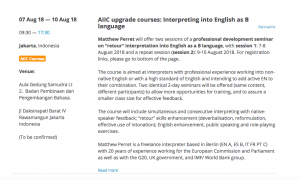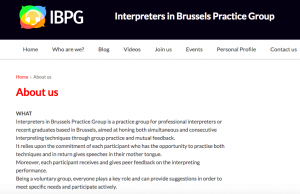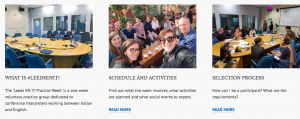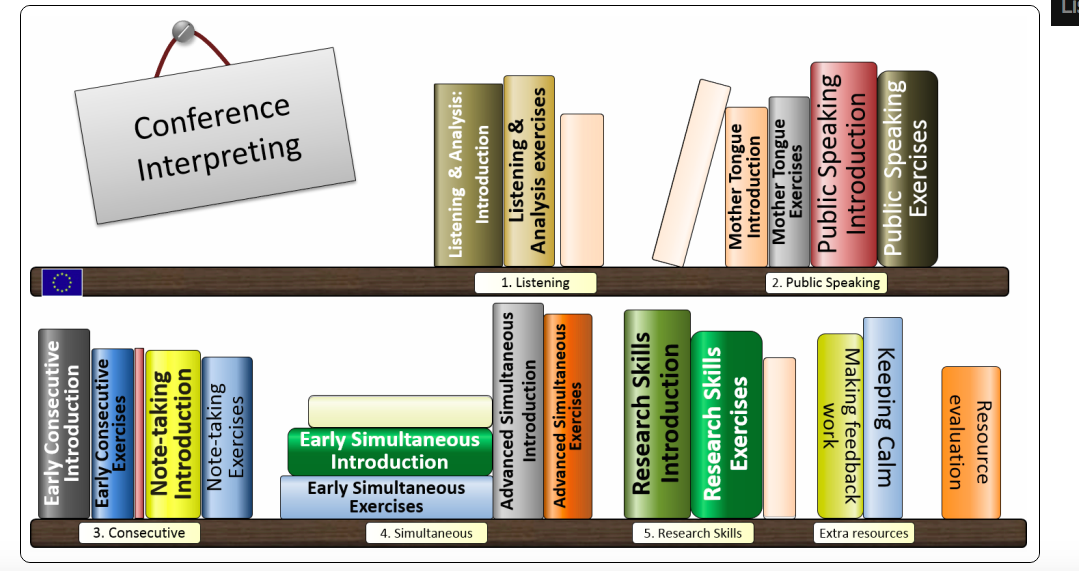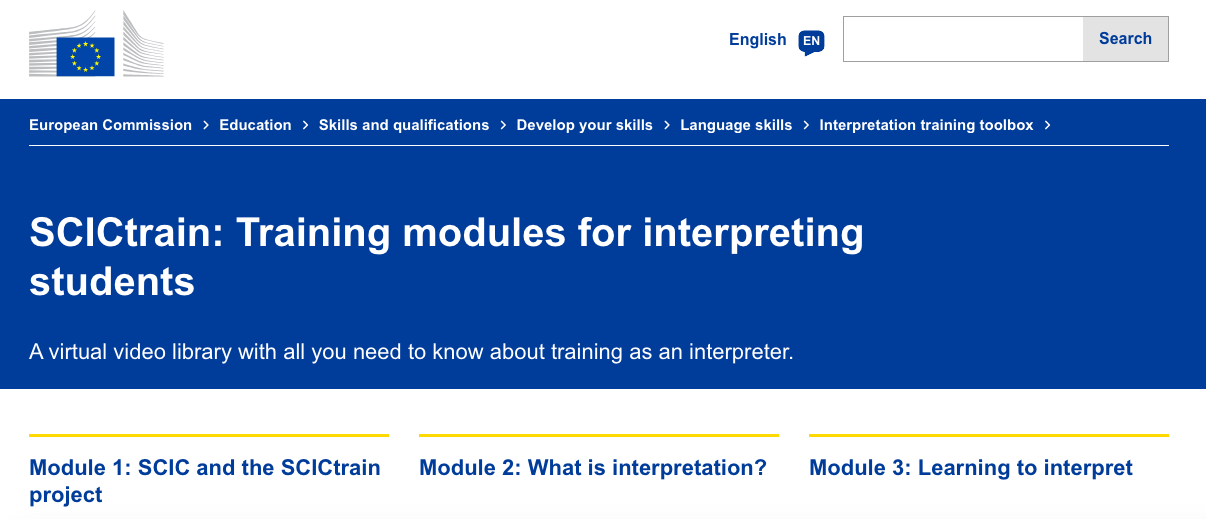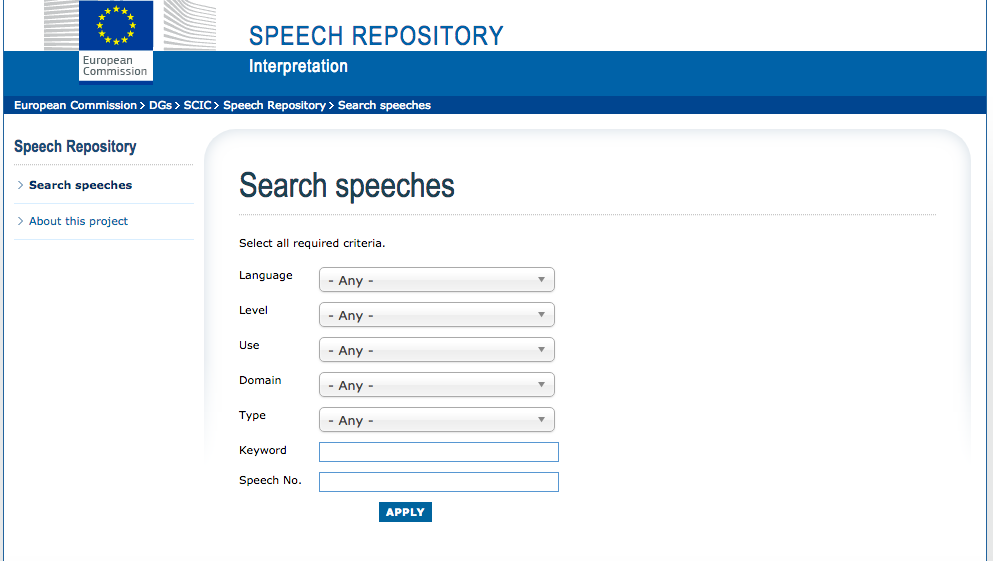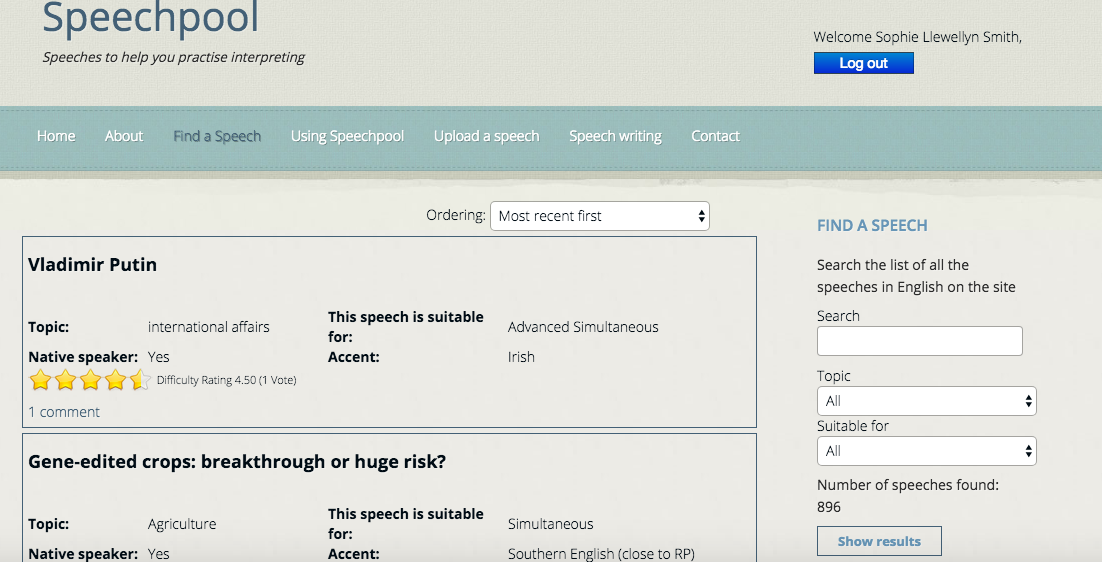In my last post, I talked about the benefits of having a native speaker of your B language listen to you when you’re practising your retour. Today, I want to focus on self-training to improve your retour.
Native speakers can pinpoint systematic errors of grammar and usage, point out where you’re not making enough sense (perhaps because the links between ideas aren’t clear enough in your interpretation), and offer alternative solutions in passages where you have struggled to express yourself idiomatically in your B.
However, it isn’t always possible – or, dare I say it, necessary – to work with a native speaker. Self-training (and please forgive me if I cringe every time I write that hateful word!) can get you a long way… on one condition.
Effective self-training to improve your retour
I want to dwell for a moment on why we assume native speaker feedback is a sine qua non for retour training. Our assumption is that native speakers know more than we do.
This assumption is based, in turn, on the fact that when we interpret into our B language, we ‘fail’. We make mistakes. We get genders and tenses wrong, we use the wrong word order, we don’t put the right verb with the right noun, we mispronounce words. Our helpful native speaker can identify those mistakes, point them out to us, and then we write them down, or research them further, and try to avoid making them in future.
When we practise by ourselves, by definition, we can’t do the same things a native speaker does. We might interpret a speech and record ourselves, then listen back to the interpretation and try to be alert to mistakes or clumsy use of language. We might go over tricky passages and see if we can think of better ways to express them. But trying to emulate a native speaker in this way, while worthwhile and a good intellectual exercise, is a lot more effort, and often less productive, than working with an actual native speaker.
Forgive me for a brief digression, but just as the Pavlovian sound of ‘self-training’ gets my hackles up (what can I say instead? Self-study? Homework? Follow-up? Practising by yourself?), after writing ‘native speaker’ ten times, I end up seeing this in my mind.

Which is not necessarily a bad thing. But back to the point. The reason self-training in retour is often less productive than working with a native speaker is because by looking for mistakes and attempting to correct them, you’re setting yourself up to fail. It’s an ex post sort of approach: you’re deliberately focusing on what you can’t do, rather than on what you can do.
For self-training to be an effective tool to improve your retour (and believe me, it can be incredibly effective), you need to flip this approach. You need to set yourself up to succeed.
Set yourself up for success when working on your retour
What does this mean in practice? It means that rather than picking up on one-off errors in an interpretation into B (which are errors you may never make again, relating to phrases you may never encounter again), you lay the groundwork before attempting to interpret a speech, so that you have activated the right vocabulary, understood the arguments, and built confidence in advance – rather than trying to do all that under pressure.
Are you still with me? I hope so. If you’re getting a little impatient for the ‘how?’, bear with me. I’m going to lay it out for you step by step.
A step by step session for improving your retour
-
- Step 1. Set aside an hour, switch off the phone, park the children in front of the TV make sure the children are engaged in a suitable educational activity.
- Step 2. Pick a topic you would like to work on in this particular session. For the sake of argument, I’m going to choose the environment; specifically, Earth Overshoot Day.
- Step 3. Select 3 or 4 sources in your B language, either short podcasts, videos, TEDtalks, or press articles, that cover the main points you need to know about Earth Overshoot Day. Don’t spend too long on searching for them; you want something that will cover the basics without being in-depth. Here’s what I’ve chosen on this topic, for someone working on an English retour. If your B language is something else, you will need pick a similar selection.
- Good old Wikipedia. Yes, I know it’s not always reliable or authorative, but you can skim read it and get a good overview of a topic. The focus will be on facts and figures, so you can pick out any useful terminology.
- The Earth Overshoot Day website. Always good to get information straight from the horse’s mouth.
- An article from The Guardian. Press coverage will give you opinion as well as facts, which is useful a) for building up a repertoire of suitable stock phrases and idioms, and b) for getting a feel for the arguments that might come up in a speech on this topic.
- A short video from Euronews. It’s good to hear, not just to read, and Euronews is an authoritative source.
- A short video from Aljazeera, covering the basics.
- Step 4. Read the articles, listen to the videos or podcasts, and note down any useful phrases and vocabulary. This is your ’emergency kit’, which you can pull out whenever you next have an assignment on this topic. Don’t make it too long! Below, you’ll find a link to the one I have just spent ten minutes producing. You can fill in the adjacent column with the vocab in your mother tongue, or in your B (if English is your A). You may find that you need or want to write down quite different things, for example words such as ‘grazing land’ or ‘cropland’; it depends on your existing knowledge. Note also that I have included a few individual words, but many whole phrases, and quite a few idioms. This is because collocations are a real challenge when working into a B, and so are idioms. It helps to have a stock of set phrases to use as a toolkit; refresh your memory by reading through them just before your next meeting or practice session on this topic. Earth Overshoot Day micro-glossary
- Step 5. Now it’s time to fine-tune your note-taking, so any symbols or abbreviations are rock solid, and to start activating the right terminology and register – with a little bit of help. Find a short speech or presentation in your B language about Earth Overshoot Day. Take notes. Deliver your interpretation. You’re doing a B>B exercise, so you’ll have plenty of inspiration from the speaker, plus from your preparatory work, to allow you to produce a fluent, idiomatic version. I’ve picked this from Sustainability Illustrated.
- Step 6. At last, you’re ready for the main event. Grab a suitable speech in your mother tongue. Remind yourself that you are now knowledgeable on the topic, confident, and armed with a plethora of appropriate and elegant phrases. Switch on your recording device and give the interpretation your best shot. In case you’re following along and actually want to try this, here are suitable speeches:
- in German
- in French
- in English. Yes, it’s moi, with a simultaneous just for you. See how my jumper matches the vase? That’s about as much staging as I’m capable of. 😉Earth Overshoot Day from Sophie Llewellyn Smith on Vimeo. The video has close captions (just click on the CC button under the video to watch them), and you can see the transcript here:Earth Overshoot Day transcript
- Step 7. Give yourself a pat on the back for making it this far. Listen back to your interpretation, and see where there is room for improvement.
- Step 8. Have one more try, incorporating any corrections and improvements.
- Step 9. Heave a sigh of relief, and eat several squares of chocolate (optional).
Now, I’m the first to admit I have obsessive completer-finisher tendencies. The good news is: some of these steps are optional! Here’s how you can play around with the sequence:
- if you are not working on consecutive, skip step 5.
- if you’re pretty confident with the topic and your knowledge of it, shorten step 3 to just one or two sources.
- if you’re satisfied with your interpretation, or you’re short of time, skip steps 7, 8 and 9.
- and honestly: steps 1 and 9 take no time at all. And why would you miss out on the chocolate?
Of course, you can also spin it out a bit:
- if you’re unfamiliar with the topic in general, read around it in your mother tongue as well as your B.
- to activate your knowledge and vocabulary further, insert a step 4.5, where you prepare a short speech about Earth Overshoot Day in your B language.
- do something that’ll give you a warm glow: share your own speech about Earth Overshoot Day on Speechpool.
- postpone the chocolate step until you’ve interpreted another speech.
- send your recording to a friend who is willing to give you some feedback.
Self-training to improve your retour: the benefits
I hope I have clearly outlined a sequence of steps that will allow you to have a very productive practice session. As you can see, there is some flexibility built in. Your Return on Investment will be huge, I promise. Here are just some of the advantages of working like this:
- The time you invest in doing just a little research will pay off in the future: you’ll know a little more about the topic, which will help with anticipation when you’re interpreting, and improve your confidence.
- Your ’emergency kit’ can be taken with you whenever you need it. You can add to it as you go along.
- This type of exercise allows you to revise and consolidate your notes on this particular topic.
- By the time you’ve finished this session, you will have expanded and activated your vocabulary. I use the word activate deliberately: many people seem to think that reading widely in your B or listening a lot (e.g. to the news on TV, or the radio) will help your retour. But never forget that what you’re trying to do is improve your active knowledge of the language, not your comprehension.
- You’ll feel so virtuous after doing this. Trust me. And it definitely took me longer to write it out than it will take you to do it. The whole session will take you between an hour and an hour and a half, depending on how many elements you include.
I would hate you to get to the end of this post and leave with the mistaken impression that I believe working with native speakers to be unproductive or unnecessary. On the contrary, I think feedback from a native speaker is essential for developing a strong retour – if it’s the right native speaker (see my previous post for reasons why).
However, not everyone has the luxury of working with a native speaker all the time, for reasons to do with time, money, or availability of the same. If that’s the position you’re in, never fear! Working through my step by step sequence will allow you to build up your skills from the bottom up, with a rock solid foundation.
To your success,

p.s. if you try out the approach I’ve just shared with you, do let me know how you get on. How did you feel afterwards? Leave a comment after this post.
p.p.s perhaps you have classmates or colleagues who are working on a retour. Why not share this post with them? You can use the Facebook button below.
 Sophie Llewellyn Smith, writing as The Interpreting Coach, is a coach, interpreter trainer, conference interpreter, designer of online teaching materials, and creator of Speechpool. Follow the blog to pick up tips on how to improve your interpreting skills, and check out the website for digital material to complement your face-to-face learning and empower you to take control of your learning.
Sophie Llewellyn Smith, writing as The Interpreting Coach, is a coach, interpreter trainer, conference interpreter, designer of online teaching materials, and creator of Speechpool. Follow the blog to pick up tips on how to improve your interpreting skills, and check out the website for digital material to complement your face-to-face learning and empower you to take control of your learning.



